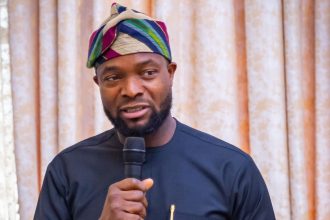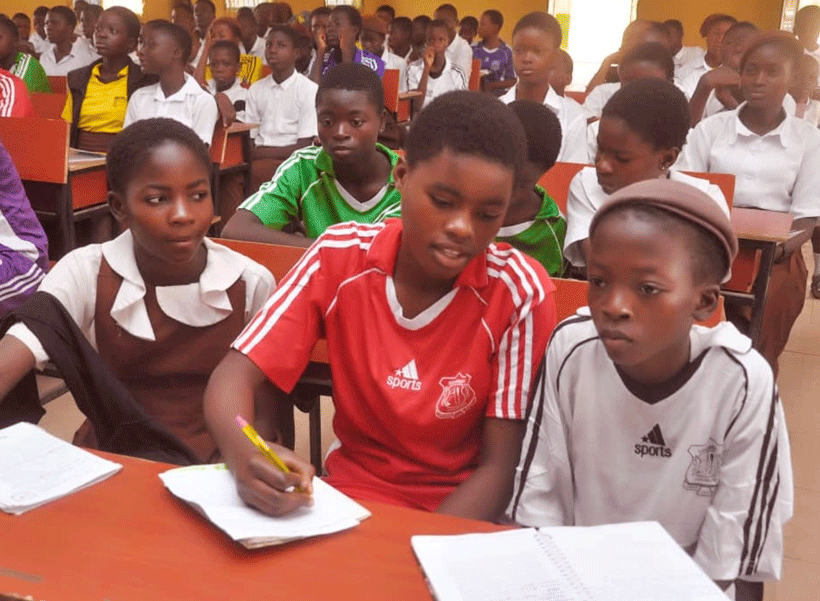Four states in northern Nigeria have required all schools to close for the Muslim fast of Ramadan, including Christian schools. This decision raises concerns for some about Nigeria’s commitments to secularism and the educational repercussions and well-being of the 11.5 million schoolchildren affected by the requirement in Bauchi, Kebbi, Kano, and Katsina States.
Bauchi State’s Hisbah Board, a state-sponsored agency responsible for enforcing Islamic law, said the directive is designed to encourage observance of the Islamic religious exercise and ensure massive participation by adherents during Ramadan fasting. Ramadan lasts from February 28 to March 29 this year.
Several Nigerian states with significant Muslim majorities have introduced Hisbah boards and police forces in the last few decades. Hisbah is an Arabic word meaning “accountability,” and the agencies are empowered to take measures to promote public morality. Theoretically, the boards’ jurisdiction is restricted to Muslims, but the BBC has reported that local Christians are often pressured to adhere to their rulings.
Defenders of the policy, like Usman Isogo, chairman of the Nigerian Union of Teachers in Taraba State, point out that the length of the school year will remain the same. However, state officials created the Ramadan break by lengthening the academic calendar in the next school term. “Instead of spending 14 weeks in the next term, they will need to spend 16 weeks,” he said.
“This policy does not speak well of Islam,” said Foud Adeyemi, National Chief Imam of the moderate Abuja-based Al-Habibiyyah Islamic Society.
“Look at the gap of the school dropouts and the failure of our students, and yet you want to keep them at home while we are struggling to catch up with the educational advancement in the Southern part of the country,” said Elder Sunday Oibe, secretary general of the Christian Association of Nigeria’s Northern States division.
The four states that have ordered the Ramadan closures are among those with the largest number of unschooled children. The National Mass Education Programme Initiative estimates that 5.74 million children living in the four states, about a third of the school-aged child population, do not attend school. School education for children ages 6-15 has been compulsory in Nigeria since 2004.
The Rev. Canon Abishai Gaiya, deputy dean of The Christian Institute, an Anglican college and seminary in Jos, said the Ramadan closures are rooted in the region’s long-term religious rivalry in the region. Jos is the largest city in Plateau State, which borders Bauchi, and has a Christian majority.
“It is not the issue of closure of schools. It is a series of buildups that has to do with some Muslim political leaders who felt that Christians were given undue advantage over public holidays,” he says.
“It started with, ‘Oh, Christians have five public holidays, and the Muslims and the Islamic calendar should have five public holidays as well.’” Gaiya noted that Mawlid, or Eid-el-Maulud, the birthday of Muhammad, became a public holiday in Nigeria last year because of such pressure.
“Most of them forget that these public holidays are global in nature. It is not something about giving an undue advantage to a Christian faith,” he said.
“Right now there is a serious campaign by some of the Islamic faithful to make the Muslim New Year a public holiday. They believe that the first of January is a holiday on the Christian calendar; therefore they should have theirs. They forget that the Christian calendar has its unique and distinct new year, Advent, which is different from the first of January each year.
“Nigeria, being a secular state constitutionally, in an ideal sense is supposed to operate [according to] global practice. The closure of both public and private schools, including Christian faith-based schools, is a violation of the fundamental rights of the citizens and undermines the freedom of religious affiliation as guaranteed by the Nigeria’s constitution,” Gaiya said.
“Even Saudi Arabia and the United Arab Emirate do not give blanket closure of schools. They rather structure it in such a way that they could reduce the number of school hours per day and not closing down schools in entirety during Ramadan,” he said.
“I know for a fact that UAE is doing six hours a day and they are not shutting down, so why are we shutting down in Nigeria? We will be puling ourselves further back with this closure,” said Professor Abiola Awosika-Fapetu, former president of Edutech Nigeria, a training program with branches in the Middle East.
Victoria George, former director of the Federal Capital Territory Education Board, traced the closure of schools during Ramadan to a mandate imposed by Nasir El-Rufai, former Governor of Kaduna State, during his 2015-24 term of office. El-Rufai required that schools be closed on Fridays in Ramadan.
With only four days of instruction each week, George said, “there is loss of instructional time, thereby making it difficult for the schools’ management to cover the curriculum. The school would not complete both the national and international learning hours for students as required by conventions.”
Gaiya added that the school calendar change also will mean that many students in the affected states may be unable to complete the West African Examination and the National Examinations curriculum at the standard time in June and July. The examination system plays a key role in student admission from secondary school and colleges into the tertiary institutions such as universities and polytechnics.
“Mind you, some of these schools have been closed down periodically due to incessant terrorism [by Islamist rebel group] Boko Haram, banditry attacks, and kidnapping. This further worsens the already stretched school calendar,” he said.
Nigeria’s Minister of Education, Tunji Alausa, said the federal government has no control over the decisions in the four states. Nigeria’s 1999 Constitution allows individual states to make decisions about education policy and the school calendar.

K.C. Nwajei is a freelance journalist based in Abuja, Nigeria.






